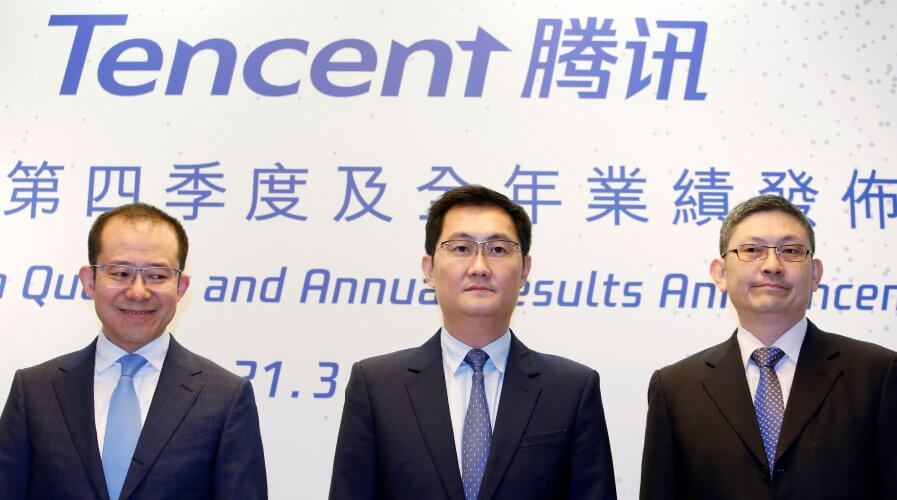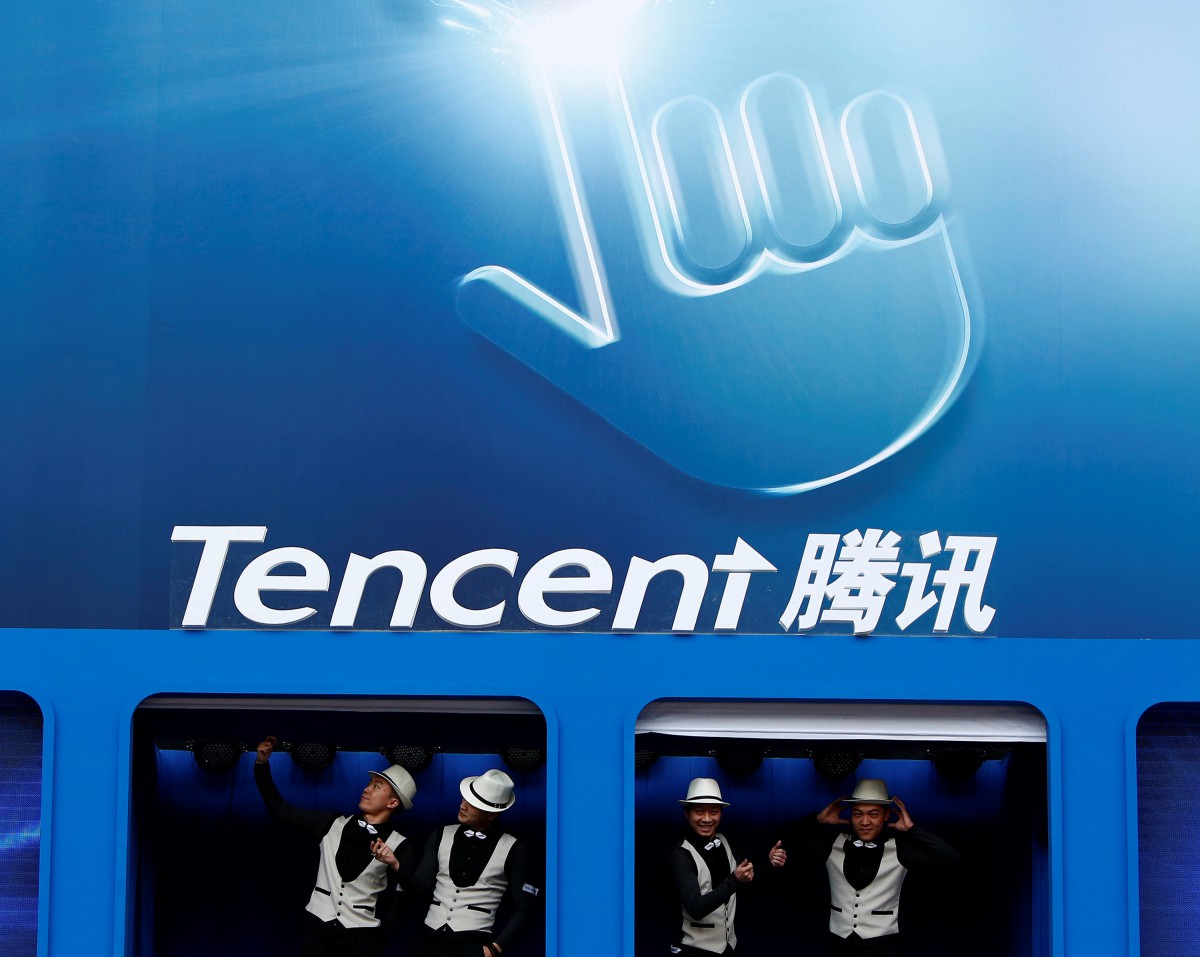
Tencent Holdings Ltd President and Executive Director Martin Lau, Chairman and CEO Pony Ma and CFO John Lo attend a news conference announcing the company’s annual results in Hong Kong, China March 21, 2018. REUTERS/Bobby Yip
Tencent says it can’t withhold requested data from China’s enforcers
CHINA’S biggest social media company Tencent Holdings can’t guarantee your data would be protected from the long arm of the law, but at least it’s honest about it.
The company’s senior management said the company was obliged to comply with enforcement data law amid a recent media firestorm on privacy.
This came after Tencent’s US rivals, Facebook, was found to have leaked user information to Cambridge Analytica, the UK political consultancy that played a key role in US President Donald Trump’s election victory recently.
After Tecent’s posted strong fourth-quarter earnings on the back of its games business, the company’s president Martin Lau Chi-ping on Wednesday told a press conference that user data security was the “top of our concerns.”
However, Lau said: “In a law enforcement situation, of course, any company has to comply with the regulations and laws within the country.”
According to the South China Morning Post, Lau said the company’s multi-purpose WeChat service, also known as Weixin in China, was subject to laws in the mainland as well as regulators in other countries.
With over one billion users, WeChat is Tencent’s most popular mobile messaging-social network-payments-and-gaming platform.
The company’s remark highlights a difficult reality for many Chinese and foreign technology companies operating in China.

Shenzhen-based Tencent is also the largest video game publisher in the world by revenue, with a market capitalization topping US$525 billion. Source: Reuters
If US companies like Apple do not accept demands to partner with Chinese companies and store data in China, then they risk losing access to the lucrative Chinese market, despite fears about trade secret theft and the rights of Chinese customers.
In 2016, Jack Ma, the founder of another Chinese internet giant Alibaba Group Holding, made a similar remark about Chinese authorities having “to embrace internet data in their fight against thieves and criminals.”
Apple’s iCloud accounts when the company moves Chinese users’ accounts to a new data center in the country to comply with new laws there.
Apple has given its Chinese users notifications about the Feb 28 switchover to the Chinese data center in the form of emailed warnings and so-called push alerts, reminding users that they can choose to opt out of iCloud and store information solely on their device.
Earlier, Apple, which moved its iCloud accounts of Chinese users to a data center on the mainland last month said it would only respond to valid legal requests in China.
However, Chinese legal experts said China’s domestic legal process is very different than that in the US, lacking anything quite like an American “warrant” reviewed by an independent court.
Court approval isn’t required under Chinese law and police can issue and execute warrants.
Until now, Apple appears to have handed over very little data about Chinese users. From mid-2013 to mid-2017, Apple said it did not give customer account content to Chinese authorities, despite having received 176 requests, according to transparency reports published by the company. By contrast, Apple has given the United States customer account content in response to 2,366 out of 8,475 government requests.
READ MORE
- The criticality of endpoint management in cybersecurity and operations
- Ethical AI: The renewed importance of safeguarding data and customer privacy in Generative AI applications
- How Japan balances AI-driven opportunities with cybersecurity needs
- Deploying SASE: Benchmarking your approach
- Insurance everywhere all at once: the digital transformation of the APAC insurance industry




